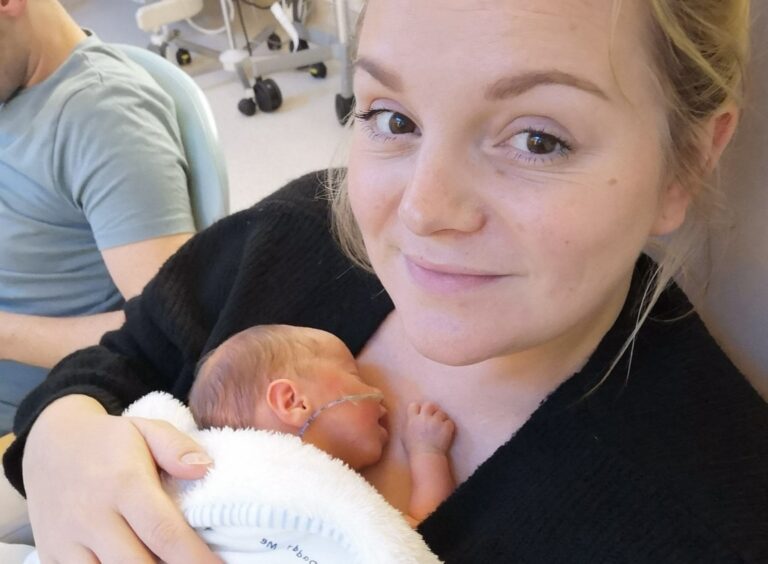

7th-13th June is Infant Mental Health Awareness Week. Infant mental health describes the social and emotional wellbeing and development of children in the earliest years of life. Despite the ongoing conversations that are happening around mental health, we don’t necessarily think of our babies and small children as having mental wellbeing. As parents, it’s an important thing to have an awareness of from the moment we know a baby will be joining the family.
Believe it or not, babies are born with a full complement of emotions, so they start learning how to manage them from the get go. Infant mental health matters, not just because we want our babies to feel content and secure, but because early emotional development impacts lifelong health and happiness. For parents, having this awareness of our babies mental health and wellbeing is about making sure we give our children as many warm, positive and compassionate experiences as possible.
As parents and caregivers, we help babies learn to feel safe to explore the world and build the foundations of resilience. Sensitive, responsive and trusted relationships are fundamental to infant mental health. Early experiences affect not only babies’ emotional wellbeing now but also influence how their bodies and brains develop in the future so looking after these things from an early age is absolutely crucial. Not only that, but paying attention to babies’ emotional wellbeing can help prevent mental health difficulties in the future.
Sally Hogg of the Parent Infant Foundation and Psychologist Matt Price from Little Minds Matter gave loads of tools, tips and tricks to try to during a Happy Mum Happy Baby Live, but stressed that first and foremost, parents mustn’t give themselves a hard time for things passed. Both Matt and Sally acknowledged that as parents, we’re all too quick to berate ourselves, but it’s about working from where we are now and with the skills and knowledge we have now. It’s also about being “good enough”, not perfect.
When thinking about these tips, remember you might not be able to do them all the time, and that’s totally OK.
When you’re doing something with your little ones, explain what’s about to happen and what it might feel like ahead of time. This will show that emotions can be tricky, but they can be managed. For example, you might say “We’re going to Auntie Vicky’s today and you haven’t seen Aunty Vicky for a while. It might feel a bit scary to be somewhere new, but once you’ve had a while to settle in, you’ll remember everything.” Then, after the experience, check in with them, reflecting on what happened and how they were. Even when your baby can’t talk back or tell you how they found the experience, these building blocks show them you’re watching how they feel and recognising how they respond to what’s going on around them.
Think of moments when you’re interacting with your baby and you could communicate verbally with empathy. Nappy changes can be a really great place to do this. Just chatting to your baby and saying things like “oh, I know it’s cold, I’m sorry, I’ll do this as quickly as possible” tell the baby they are loved and cared for and can make them feel at ease elsewhere. These small interactions might seem tiny to you, but have a long term impact.
Babies give us so many non-verbal cues, and lots of supporting their mental wellbeing is about navigating these cues. You’ll be doing a lot of this without even realising, but having more of an awareness of the things your baby would be saying if they could speak can help you support them as well as possible. For example, when our babies are anxious, they may seek extra comfort from us or be less keen to explore. Sometimes this can be described as being “clingy” and we can try to encourage them to not be “clingy” but they’re usually showing this kind of behaviour because they have a need. Meet that need by being a secure base. You usually know what your baby is telling you, listen to that and respond with that warmth and compassion.
It’s all well and good being compassionate to your babe, but being compassionate to yourself is just as important. Let’s not forget that baby see, baby do, so if you’re leading by example, you’ve got to start with self compassion. Put your own oxygen mask on first. So many of the things we learn about how we treat ourselves stem from how our parents treated themselves, so think of how you treat yourself as a model for how you want your child to treat themselves in the future.
We’ve been living through unprecedented times. It’s likely that as parents, you’ve been juggling a lot throughout this time. One thing to remember is that foundations can be fixed and rebuilt. While loving and nurturing relationships in the first 1001 days of a baby’s life are crucial for development both now and in the future, blaming yourself for “falling short” isn’t going to help anyone. You can start now, today, wherever you are, whatever age your kids are, by creating predictability in an unpredictable world with compassion, kindness and warmth. Everything we do with our babies, infants and children is about investing now in the return that we’ll get later in our teenagers and adult children, and the people we put out into the world.
Find out more about infant mental health, check out our Instagram live with Matt Price from Little Minds Matter and Sally Hogg from the Parent Infant Foundation. Find out more about Infant Mental Health Awareness Week